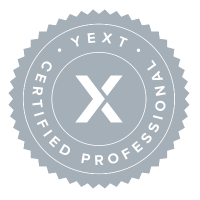
The American Society for Aesthetic Plastic Surgery (ASAPS) is a distinguished international association of board-certified plastic surgeons. Each quarter, they publish Aesthetic Society News, a newsletter that provides information, innovations, and updates surrounding plastic surgery that helps surgeons and marketers expand their reach and stay up to date on the latest industry developments.
This quarter, Plastic Surgery Studios contributed an article about adapting to Google’s recent E-A-T algorithm updates in the Summer 2019 Issue of Aesthetic Society News (page 83).
Adapting to Google’s E-A-T Update
Google regularly makes updates to its search algorithm to create the best possible user experience and ensure the best content is making it to their users. When these changes are made, websites must adjust to excel in the new search landscape. Otherwise, ranking positions in search engines could drop, and all of the hard work put into building your presence could potentially be lost in the new formula.
3 Areas That Will Impact Search Engine Rankings

Google’s new (E-A-T) algorithm focuses on three main components:
- Expertise
- Authority
- Trustworthiness
Let’s take a look at each of these pieces individually:
1. Expertise
Google prefers to provide information from knowledgeable experts in their fields to ensure accurate information is presented to their users.
In the field of plastic surgery, plastic surgeons are considered one of the most reliable sources of information. Therefore, it is essential to provide accurate information about cosmetic procedures and treatments on your website that meets searchers’ intent. You can capitalize on your expertise by showing Google that your web content meets the high standards set for websites of this caliber.
2. Authority
Authority refers to the credibility of the website itself. Credibility is determined by third-party testimonials and reviews as well as the site owner’s qualifications. Highlighting outside ratings are a great way to rise in the Google search ranks since all of these factors are taken into consideration.
3. Trustworthiness
Trustworthiness focuses on the technical parts of the website, such as SSL certification, security, and site accessibility. White hat SEO strategies that follow Google’s terms and conditions will also help enhance your trustworthiness. Focus on these, which include curating useful and accurate content, instead of black hat marketing like cramming as many keywords into a webpage (keyword stuffing). Under this new algorithm, this practice of “keyword stuffing” is detrimental to a site’s search rankings.
Do’s and Don’ts in the New Algorithm
Here are a few strategies you can implement to develop site content Google will want:
Do:
- Create educational blogs and web pages
- Cater to your audience’s preferences
- Write using conversational language
- Produce concise, unbiased content
- Supplement content with visual elements
Don’t:
- Write duplicate or highly similar content
- Use obsolete or irrelevant information
- Be overly wordy or technical
- Use crowded, busy, or displeasing designs or formats
Keeping up with all of Google’s latest updates can be difficult when you’re running a business. Let our team of digital marketing experts determine the best strategies to optimize your website for this and other Google updates.


